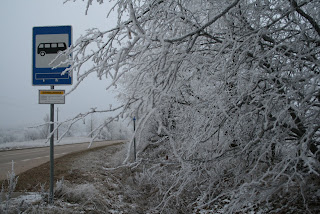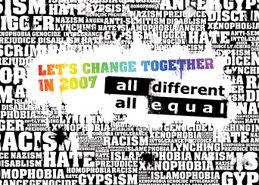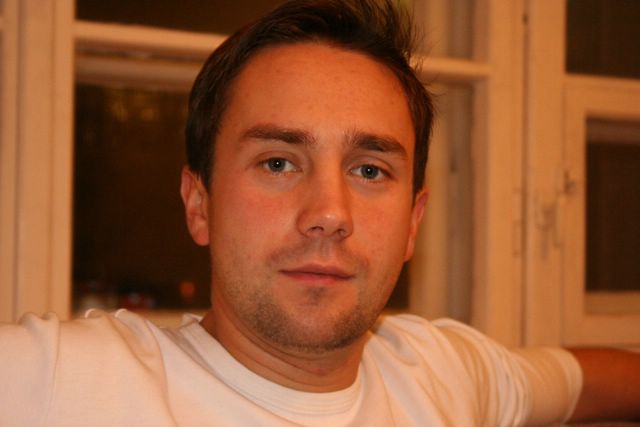 with Marius Ulozas, YEU (Youth for Exchange and Understanding)
with Marius Ulozas, YEU (Youth for Exchange and Understanding)
About me:
I am former Vice President of INGYO "Youth for Exchange and Understanding" now managing YEU Lithuanian branch, also being involved in co-management structure between youth NGOs and Lithuanian government and working as freelance trainer. Besides that, I help in preparing methodological materials for international youth work, write articles for European Youth Forum, YEU, Lithuanian National Youth Council, and Lithuanian National Agency. Main areas of my training interest – European citizenship, promotion of active participation, youth work development and sustainability, empowerment of young people. For active international youth work I was awarded "Youth ambassador 2005" title in Lithuania.
Q: How long have you been involved in training and how did you start with it?
It's been 4 years now when I deliver trainings and the way to this was pretty long but logic :) I engaged myself with a YEU member organization in Lithuania back in 2003, after two years' involvement in a political youth organization. YEU attracted me with its intercultural offer and possibility to implement my own ideas in a multicultural environment. Participation in seminars and training courses gave a lot of insights and an understanding that others can think in a different way and that nothing is wrong with that. It also gave me confidence and motivation to go on and share learned things with others.
The nice thing about YEU is that you can get as much as you want – because it depends only on your motivation and dedication. Since I like management and wanted to develop training skills, I went in both directions. On the one hand, after working two years for the YEU Lithuania governing board I was elected YEU Vice-President; whilst in the training field I continued working on different topics and started giving trainings for YEU and outside the network. Through involvement in YFJ and CoE pools of trainers I was fortunate to see the work of many European NGOs. AEGEE is one of them and I am very happy having been involved in several events in 2007.
Q: What value do training and human resources development have in YEU?
For us, training and HR management is one of the most important ways to keep our network alive and sustainable.
We entered the 21st century facing a growing shortage of skilful, competent and motivated young people to run our organizations and programmes. This resulted from the incapacity, in the second part of the 90's, to prepare "new" members to continue the work of the "older" YEU generation in a sustainable manner.
5 years ago we decided to invest our energy in the following three directions:
- Allowing more young people to get involved in YEU through the clarification of YEU structure, procedures and policies. It made clear the way in which YEU can support the development of members who wish to develop their competencies in the youth field and allowed the initiation of youth workers careers in our structure.
- Raising the quality and quantity of non formal education and learning opportunities within the network. We promoted participation of our members in international training courses, such as those provided by the Council of Europe (CoE), SALTO centres and by the Covenant between the CoE and the EU. The direct result of this step was the development and the higher quality of our own training activities.
- Developing cooperation with other NGO's and International Youth Organizations to share best practice and resources. The European Youth Forum has been a privileged space for the development of those partnerships and for the raising of YEU knowledge in many youth areas, especially those related with youth policy and with youth work practice. This opens existing NFL spaces to people from other organizations and creates peer-to-peer cooperation with different organizations, thus creating new NFL spaces.
More elaborate document about YEU approach towards NFE can be found at
http://www.training-youth.net/INTEGRATION/TY/Publications/coyote/coyote11/yeu_nfe.html
Q: You have been to some AEGEE trainings (T4T in Patra, European Citizenship in Tbilisi, in Köln, NFE Seminar in Paris) - Where do you see differences between training in YEU and AEGEE?
First but very obvious difference – we are not student organization, even though most of our members do study. This difference result in following: our events never happen in Universities, we do have a national level; we don't like PPT that much, we would rather prefer street animation. We also put a strong emphasis on inclusion of people from different social and cultural backgrounds. Our main methodology is learning by doing or so called experiential learning through personal and group experience.
Q: Where do you see the strengths in AEGEE trainings?
AEGEE has good skill trainings – FR, PR, etc. and you should maintain them. You do have strong trainers- try to keep them and learn from them; continuation, passing the experience are very very important in the youth work, since things and people tend to change fast. Training is one of the main tools which can ensure passing organizations values and culture.
Q: Is there something you would like "to give us on the way", some hints, tips and tricks of what we could do better in your opinion?
One important thing to bear in mind – if we concentrate on little things (e.g. particular skill trainings) we might loose overview of youth work after some time. Besides, if we only concentrate on areas were we are week – we might loose our positions in the areas were we are strong – it has to be balanced (it's like Swiss cheese, we shouldn't care about the holes only, the cheese itself is what is the most important).
Another thing which you started to implement and should continue: involving non–AEGEE trainers in your events and creating partnership with non-AEGEE organizations. It helps to enrich your work, to share and pass on AEGEE methods; it also helps to define what you do best and what the core of AEGEE is.
You should find a way to remind to some antenna's about the educational part of AEGEE work. You do a lot on European level but local organizations are not always aware of it. More awareness would empower them to use European programs like YiA, and will strengthen their local work.
And last, organization has to be strong enough to set ambitious goals and to review constantly what they are doing and try to find new ways, new forms of work.
Q: Thanks so much!
You are very welcome :)
 o nuotraukoje nuostabus vaizdelis pakeliui į Švenčionis - nors sniego nėra, medžiai gražiai apšerkšnyję..
o nuotraukoje nuostabus vaizdelis pakeliui į Švenčionis - nors sniego nėra, medžiai gražiai apšerkšnyję..








